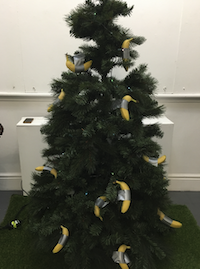Changing

When the Coronavirus arrived in Europe in February this year, and our denial that it could not happen to us gave way to an unwelcome reality, few would imagine we would be here now facing a non-Christmas. Many are improvising ways to still celebrate in our safe bubbles yet still connect with friends and family by any means, many using technology in a way they would not have dreamed about a year ago. There are a few lessons we can learn from this shift. We are ingenious, and resilient in that we will not allow some harsh circumstances to cancel our need for connection. We are able to adapt, to a changing world, and soon normalise what was once novel, even alien. We can embrace technology when it is in the service of something we see as a true benefit. So much of our recent use for technology seems convenient, important, yet on balance offer more to the creators and custodians of services than to us. In the face of the Coronavirus, technology has provided solutions to what we recognise is missing - human contact, the validations and belonging, access to entertainment, education, culture, that we cannot touch in the traditional ways. The tech is secondary, while the need it services is perhaps more significant than when we could take them for granted.
I have little doubt that big changes to the way we do things are going to become more common, in the face of vain political shenanigans, to pandemics, to global climate crisis and the events that follow them. What we have shown is that people can change and embrace new ways of doing things. We do not have to wait for a crisis to force the next change. We can start to change now to avert it.